
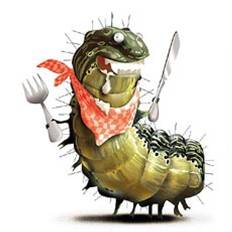


Western Illinois University Physiological Ecology, Plant-Herbivore Interactions and Genomics Lab
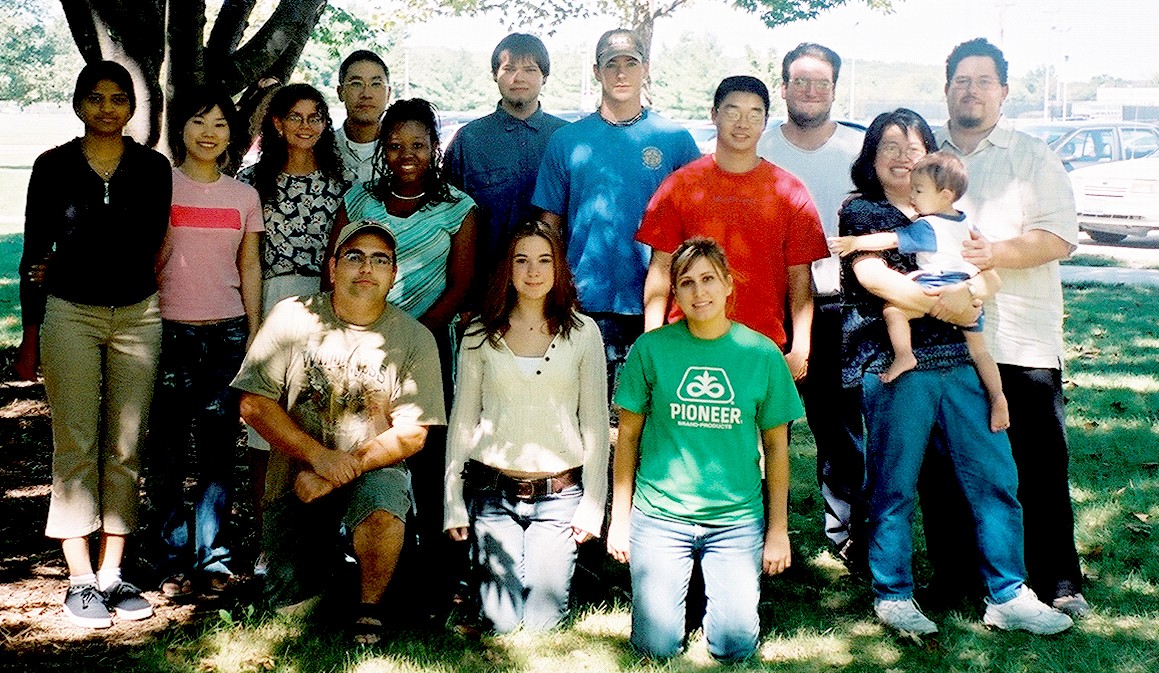
WELCOME!!! I hope that you enjoy some of the information about our lab members and our publications. We use an integrative physiological approach to understand the ecological interactions of organisms. Many of our current projects utilize functional genomic tools to help answer questions focusing on inducible plant defenses and herbivore offense. Much of our recent research deals with understanding the function of insect saliva on inducible plant defenses. In addition to plant-herbivore defenses our lab is interested in a wide range of basic physiology, behavioral, and ecological questions.
Wanted: I am always seeking students who want to work hard, think creatively and succeed! I am sincere in my attempts to closely mentor my students and help them to find funding for their research and help them get their careers launched.
Current Research Projects Available for Student Researchers
Several projects are moving along simultaneously, we are working with maize, tomato, and Arabidopsis concurrently because microarray chips are available, microarray chips allow us to investigate the expressions of literally thousands of genes. We are testing several different salivary enzymes from various caterpillars, whiteflies and the Mexican bean beetle. In addition we are interested in plant pathogens vectored or associated with insects. We rely heavily on chemical assays and bioassays being performed in conjunction with microarrays to investigate inducible plant defenses.
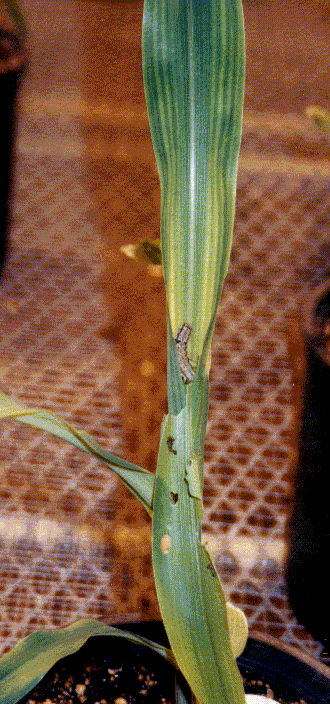
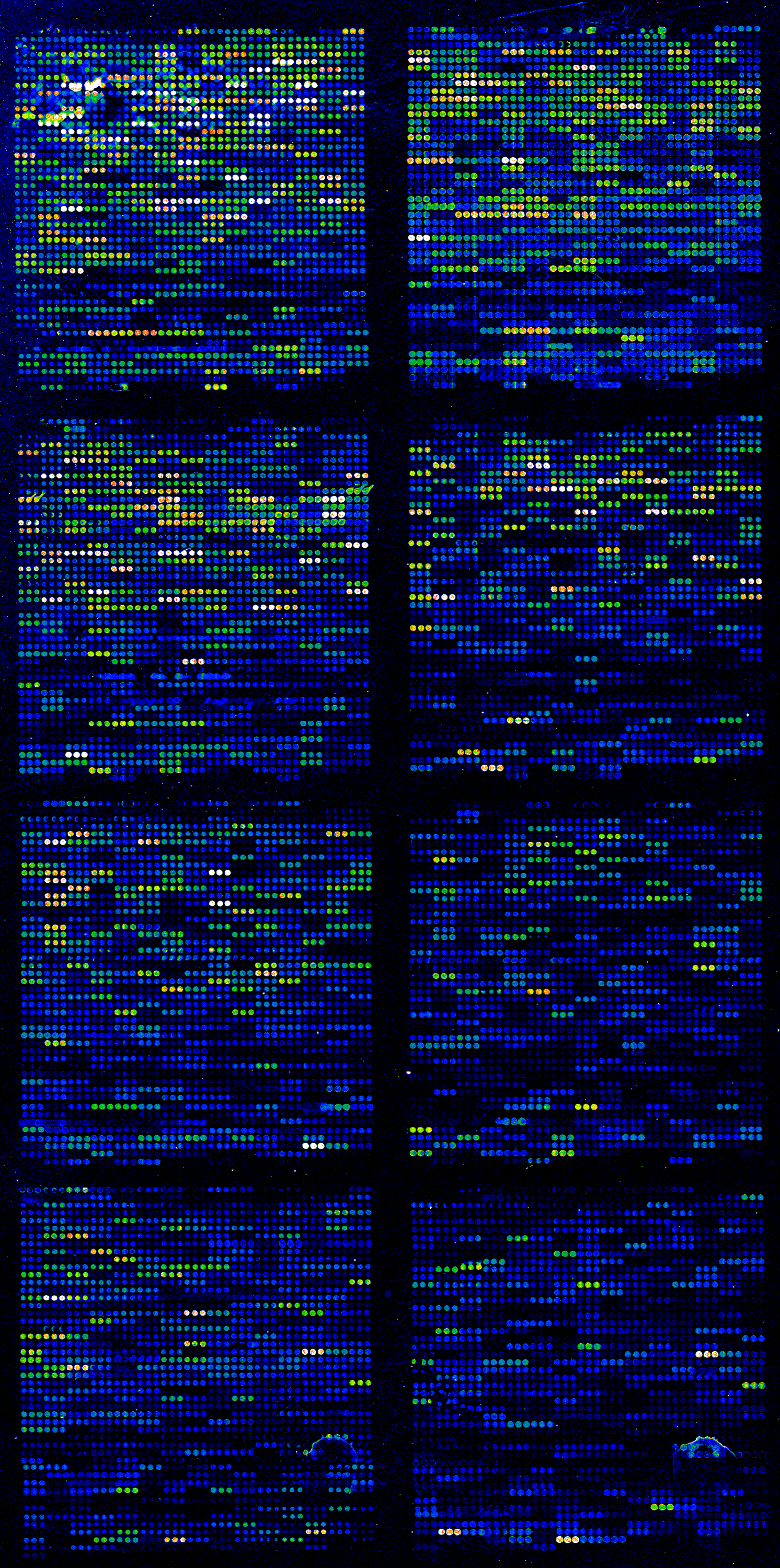
Caterpillar feeding on maize plant and maize cDNA microarray
Current Lab Members
 Primary
Investigator- Dr. Richard O. Musser Assistant
Biology Professor Dept. Biological Sciences
at Western Illinois University Email
Dr. Musser or RO-Musser@wiu.edu
Primary
Investigator- Dr. Richard O. Musser Assistant
Biology Professor Dept. Biological Sciences
at Western Illinois University Email
Dr. Musser or RO-Musser@wiu.edu
If you want to know more about my professional education, seminars, and awards see my CV (with links) or check out our lab publications below.
Co-Primary
Investigator- Dr. Sue M. Hum-Musser Research
Associate Dept. Biological Sciences
at Western Illinois University
Active Collaborators- Drs. Judy Brown, Cheryl Vanier (University of Arizona), and Don Cipollini (Wright State University), Cesar Rodriquez-Saona (Michigan State University), Rose Gergerich (University of Arkansas)

Research Lab Manager- Mr. Spencer A. Williams
Master's Biology Students

Ms. Sucheta Aaytee
Master's Thesis: Functional Genomics of Maize to Insect Herbivory
Careers Goals- Ph.D. in Bioinformatics
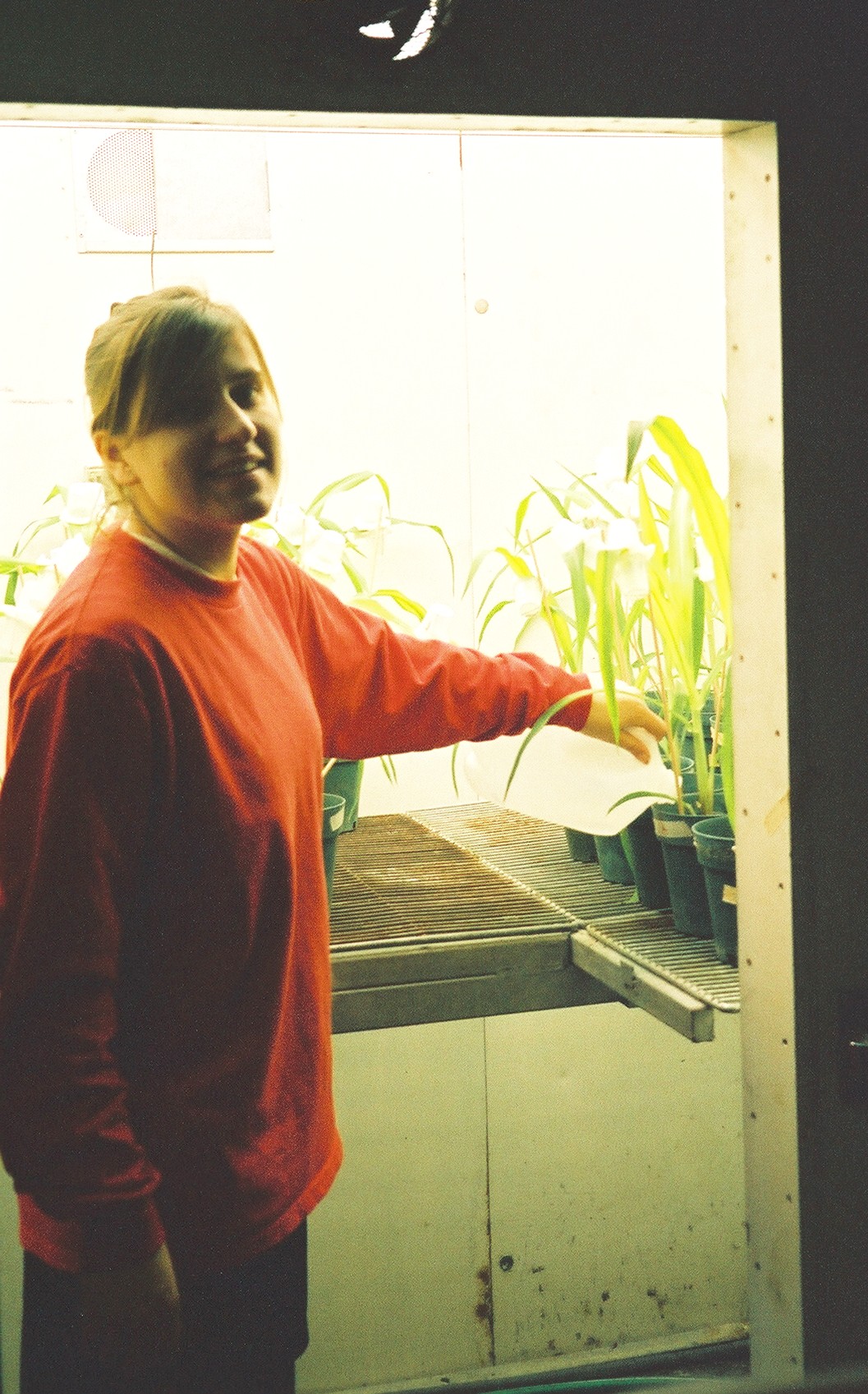
Ms. Jacque Gerard
Master's Thesis: Molecular Response of Maize to H. zea herbivory
Careers Goals- Research Technician or Ph. D.

Ms. Yaa
Master's Thesis: Induction of Plant Pathogen Defenses
Careers Goals- M.D. or Ph. D.
 Mr.
Hyeog Sun Kwon "Sunny":
Mr.
Hyeog Sun Kwon "Sunny":
Master's Thesis: Evidence that Caterpillar Salivary Enzyme Provides Protection Against Pathogens
Career Goals- Ph. D. program with a Molecular Biology emphasis
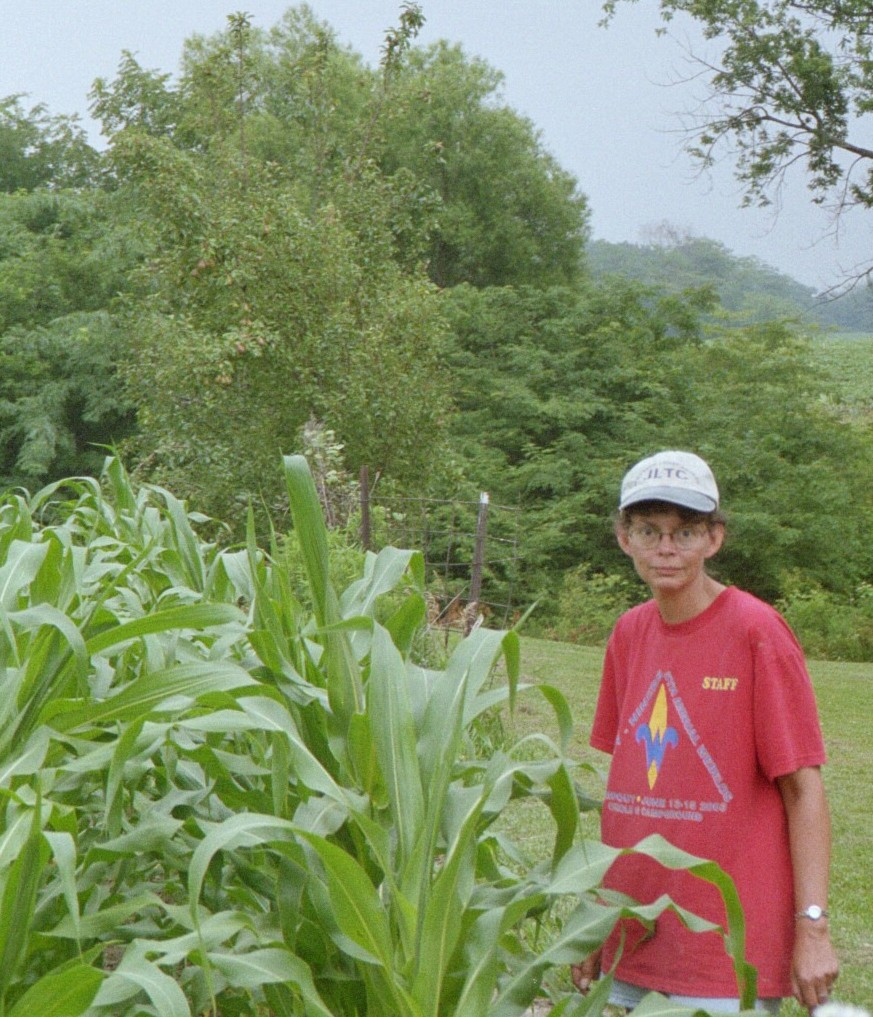
Mrs. Mari Aanenson
Master's Thesis: Testing plant defense hormones in a garden.
Careers Goals- Community College Instructor
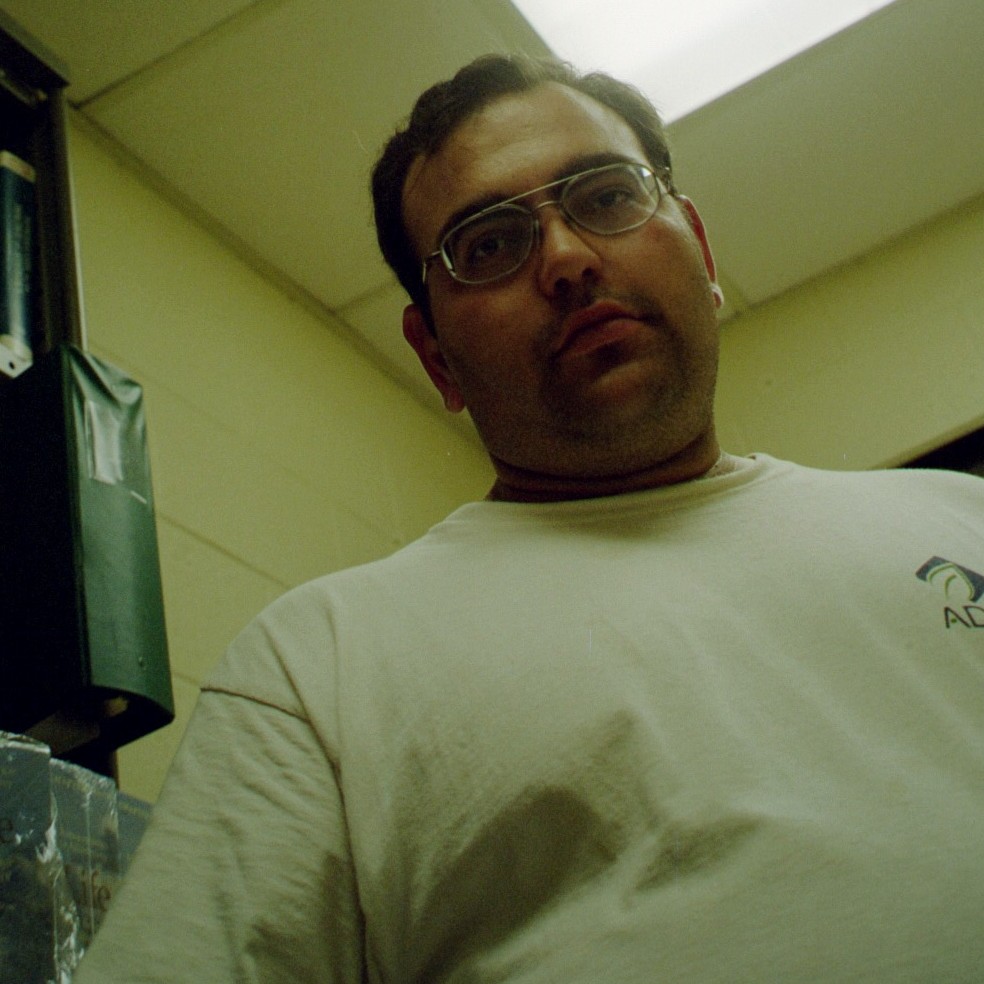
Mr. C. James White
Master's Thesis: Testing the function of caterpillar saliva on plant defenses.
Careers Goals- Research Technician

Mr. Tyler Lomax
Master's Thesis: Caterpllar Saliva and Insect Pathogen Infectivity
Careers Goals- Optometry
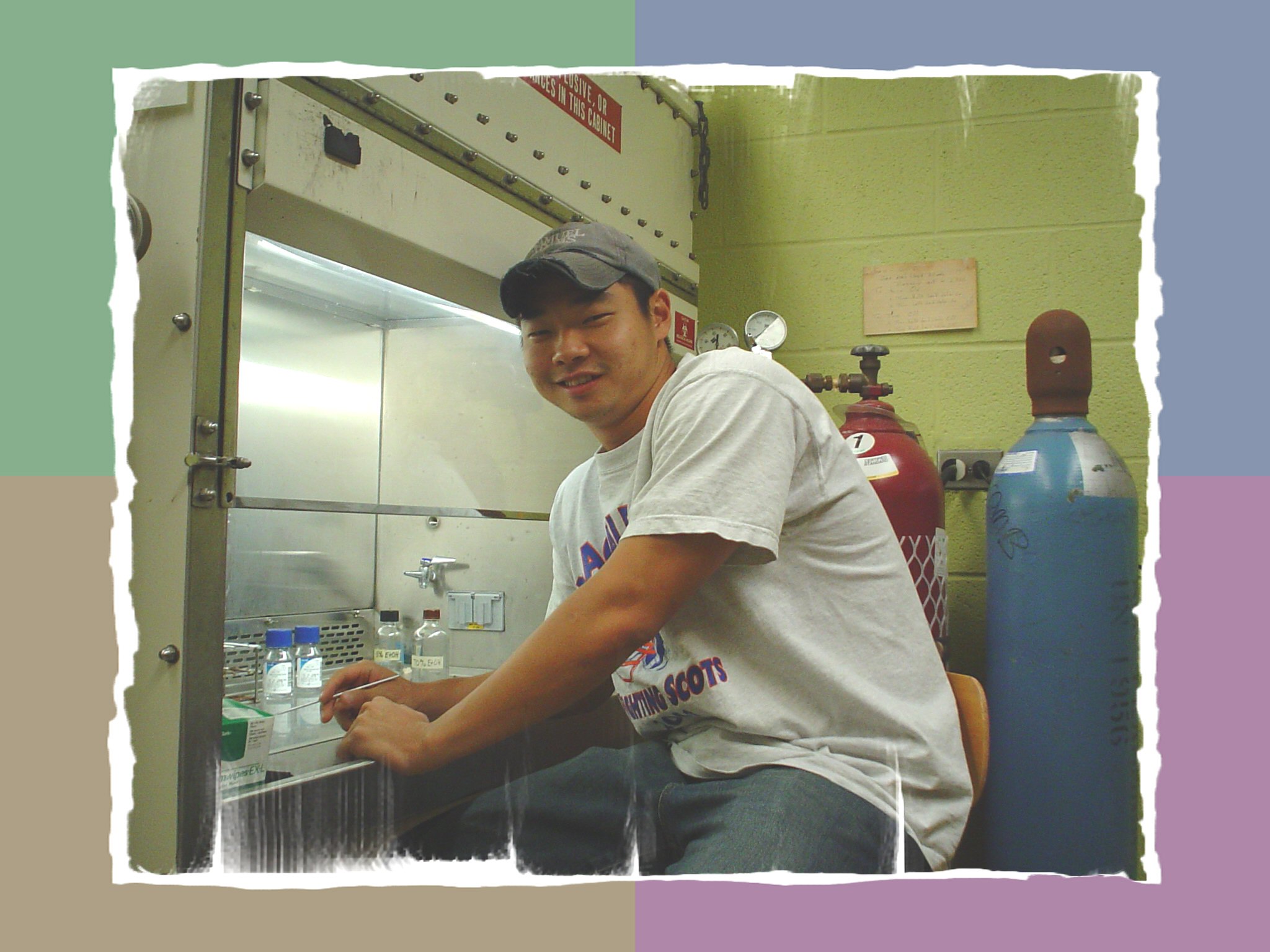
Mr. Henry Lee
Master's Thesis: Effect of Caterpillar Salivary Enzyme LAP on Plant Defenses
Careers Goals- M.D., or D.O.
Biology Undergraduate Students
Ms. Kim Lecompte
Honor's Thesis subject area- Interaction of Mexican Bean Beetle and Corn Earworm Caterpillar on Pinto beans
Career Goals- Graduate School, and/or interested in working in a Zoo setting.
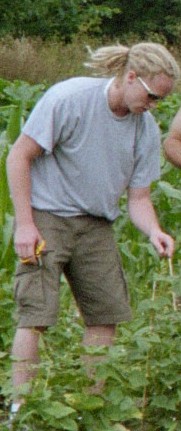
Mr. Nate Holton
Part-time student research assistant
Career Goals- D.D.S. or D.D.M.
Mr. Joseph Sherman
Honor's Thesis subject area- Corn Earworm Caterpillar on soybeans
Career Goals- Graduate School

Musser Lab Publications
Please send me an Email if you wish to receive a copy of an article listed below!
* denotes student author
Musser, R. O., Hyeong S. Kwon*, Spencer A. Williams*, C. James White*, Mike Romano, Shay Bradbury*, Judith K. Brown, and Gary W. Felton. 2004. Evidence that the Caterpillar Labial Saliva Suppresses Pathogencity of Potential Bacterial Pathogens. (in press Archives of Insect Biochemistry and Physiology).
Musser, R. O., Don Cipollini, Sue M. Hum-Musser, Spencer A. Williams*, Judith K. Brown, and Gary W. Felton. 2004. Evidence that the Caterpillar Salivary Enzyme Glucose Oxidase Provides Herbivore Offense in Solanaceous Plants. (in press Archives of Insect Biochemistry and Physiology).
Musser, R. O., Edward Farmer, Michelle Peiffer, and Gary W. Felton. 2004. Caterpillar Salivary Gland Ablation Technique for the Clarification of the Role of the Labial Enzyme Glucose Oxidase. (in press Journal of Chemical Ecology).
Musser, R. O., Sue M. Hum-Musser, Gary W. Felton, and Rose Gergerich. 2003. Increased Larval Growth and Preference for Virus-Infected Leaves by the Mexican Bean Beetle, a Plant Virus Vector. J. of Insect Behavior 16: 247-256.
Musser, R. O., Sue M. Hum-Musser., Herb Eichenseer, Michelle Peiffer, Gary Ervin, Brad Murphy, and Gary W. Felton 2002. Caterpillar Saliva Beats Plant Defences: A New Weapon Emerges in the Co-evolutionary Arms Race Between Plants and Herbivores. Nature 416: 599-600.
Musser, R. O., Sue M. Hum-Musser, Shannon Slaten-Bickford, Gary W. Felton, and Rose Gergerich. 2002. Evidence that Ribonuclease Activity Present in Beetle Regurgitant is Found to Stimulate Virus Resistance in Plants. J. Chemical Ecology 28: 1691-1696.
Ham, C. M., J. R. Brown, R. O. Musser, C. R. Rutledge, and M. V. Meisch. 1999. Comparison of Electrostatic Versus Non-electrostatic ULV sprays of Aqua Reslin Against Anopheles quadrimaculatus adults. J. Am. Mosq. Control Assoc. 15: 312-314.
Grants
Musser, R.O. and Hum-Musser, S. M. 2004. Maize Functional Genomic Response to Insect Herbivory. United States Department of Agriculture. Funded Amount- $100,000
Musser, R.O. and Hum-Musser, S. M. 2004. Insect Salivary Enzymes Stimulate Plant Pathogen Defenses: Examination and Development of Novel Methods to Protect Plants from Pathogens and Insect Pest. Illinois Department of Agriculture. Funded Amount - $83,442
Musser, R.O. 2004. Using Microarray to investigate insect and plant interactions. Western Illinois University Research Council. Funded Amount - $5000
Musser, R.O. 2004. Technology in the Class Room. Western Illinois University Faculty Developement Office. Funded Amount - $1000
Musser Lab Alumni
2002-2003 Matthew Gallucci, Spencer Williams and Michael Robinson (University of Arizona). Post-doc mentor for Mr. Gallucci, closely advised him on designing experiments for his Master’s thesis. Spencer Williams Undergraduate Research Assistant and Mike Robinson High School research assistant worked directly with me on insect saliva experiments.
2001 Shannon E. Slaten-Bickford1, John Goff§, Spencer Williams^ ,John Smith§ and Shaun Steele* (University of Arkansas). 1Undergraduate Research Assistant;§Students from Arkansas School for Mathematics and Sciences, Hot Springs, AR; *Upward Bound. Advised students on a summer research project dealing with the Tri-trophic relationship between the Mexican Bean Beetle, Bean Pod Mottle Virus, and soybeans. §1st place overall team science fair competition, and competed in International Science Fair Competition in May 2002. ^1st place Regional Science Fair in Botany and 1st place Regional Jr. Academy in Botany.
2000 & 2001 Michelle Shreve (University of Arkansas). Student from Arkansas School for Mathematics and Sciences, Hot Springs, AR and Upward Bound. Advised Michelle on a summer research project dealing with the suppression of the virulence of the insect pathogen HzNPV by caterpillar saliva. Her results from our research project resulted in her winning three science fair awards: 1st place Regional Science Fair in Zoology and 1st place Regional Jr. Academy for Zoology, Honorable Mention Overall Regional Science Fair, 3rd place State Jr. Academy in Zoology and State Science Fair in Zoology, Special Award from the U.S. Army ($50 savings bond).
![]() *unique visits
(Created October 26, 2003)(updated September 2004)
*unique visits
(Created October 26, 2003)(updated September 2004)
*does not count repeat visitors...